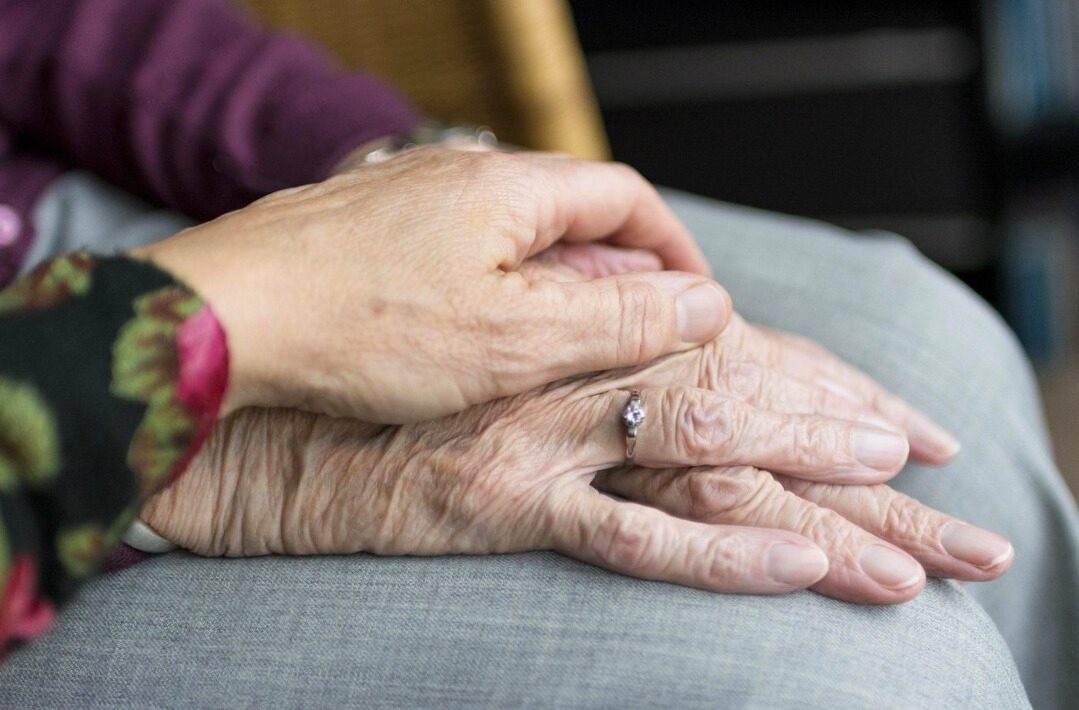Communities are key in supporting the dying and grieving across the island of Ireland
Communities across the island of Ireland are key in supporting those who are dying, a paper by Queen’s University researchers states.

Historically across this island, the role of caring for people through serious illness, dying, death and grief was centred in the community.
With important advances in palliative and end-of-life care, many people in society now view the responsibility for dying and death as that of healthcare professionals.
Dr Lisa Graham-Wisener from Queen’s University’s School of Psychology is one of the paper’s authors. She explains: “The death rate is expected to more than double across the island of Ireland in the next twenty years and we also expect an increase in the number of people dying at home.
“It is vital that we recognise the value communities can bring in supporting those facing the challenges associated with serious illness. Communities can complement formal healthcare services by helping to address broader aspects of suffering. For example, through developing networks of practical support for those with serious illness and their families."
She adds: “To achieve the highest quality and continuity of care, we argue that entire communities should be empowered to care for people around the end-of-life, supported by our valued specialist and generalist palliative care services and wider civic society."
The paper, Fostering Compassionate Communities: A Call to Transform Caregiving, Dying, Death and Grieving on the Island of Ireland, puts forward nine recommendations.
It emphasises the need for a mandate for fostering a compassionate communities approach at local government level. This would recognise that caregiving, dying, death and grieving should not be the role responsibility of health and social care.
The paper also states that individuals facing the challenges associated with serious illness need to encounter compassion in all aspects of their lives, including in schools, workplaces, and trade unions.
Dr Graham-Wisener adds: “There are already many excellent examples of compassionate communities initiatives across the island of Ireland. However, dedicated top-down support is needed. This is necessary to ensure the right environment for further community development and also to achieve the systems level change needed to mobilise compassion across all sectors of society.”
Officially launched on Tuesday 14 January at an online event, the paper was commissioned by the All Ireland Institute of Hospice and Palliative Care (AIIHPC), Foyle Hospice, Irish Hospice Foundation with funding from the Shared Island Civic Society Fund from the Department of Foreign Affairs Ireland (RoI) Society Fund from the Department of Foreign Affairs Ireland and the Public Health Agency (NI).
Karen Charnley, CEO, AIIHPC welcomes the position paper. She says: “We are delighted to have commissioned this paper, that sets out clear recommendations for a compassionate approach to supporting people with life-limiting conditions and to dying, death and grieving on the island of Ireland.
“The paper highlights the need to be responsive to the needs of people with serious illness in our communities, and to achieve this, we need to foster strong networks by engaging with agencies and groups including community and civic organisations, local government, government departments, and civic leaders.
“We also need to build on public awareness to achieve more universal recognition of the vital role of Compassionate Communities across the island of Ireland and we look forward to supporting this work in the months and years ahead.”
The paper was written by Lisa Graham-Wisener, Stephanie Crawford and Ashleen Crowe from the School of Psychology at Queen’s University Belfast.
To view the full paper, please click here.
